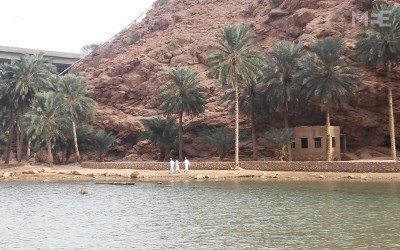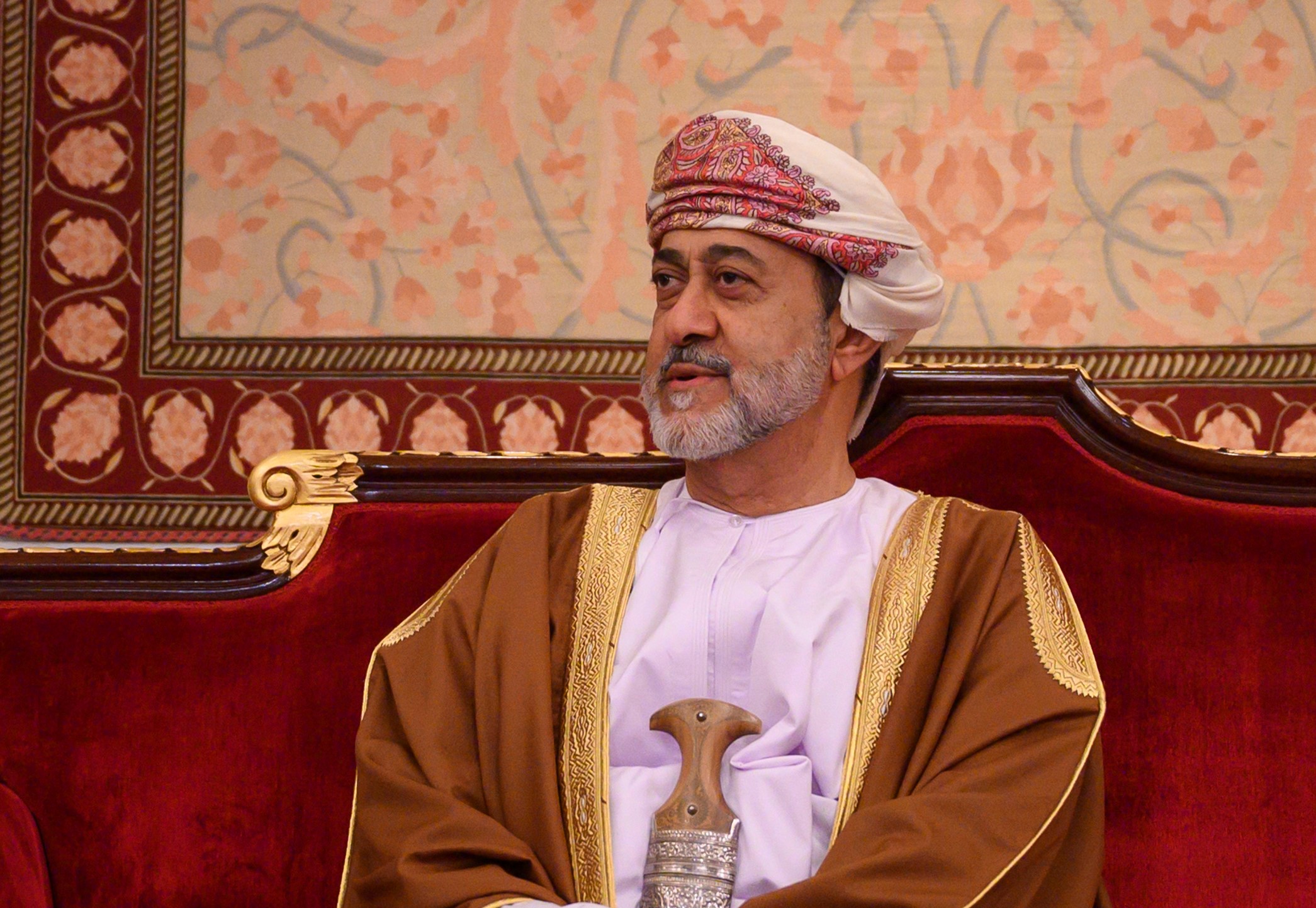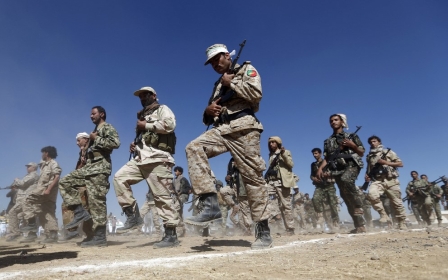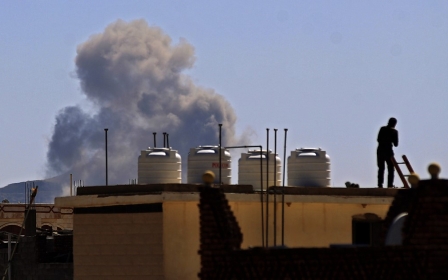Yemen war: How Oman and the US are finding common ground
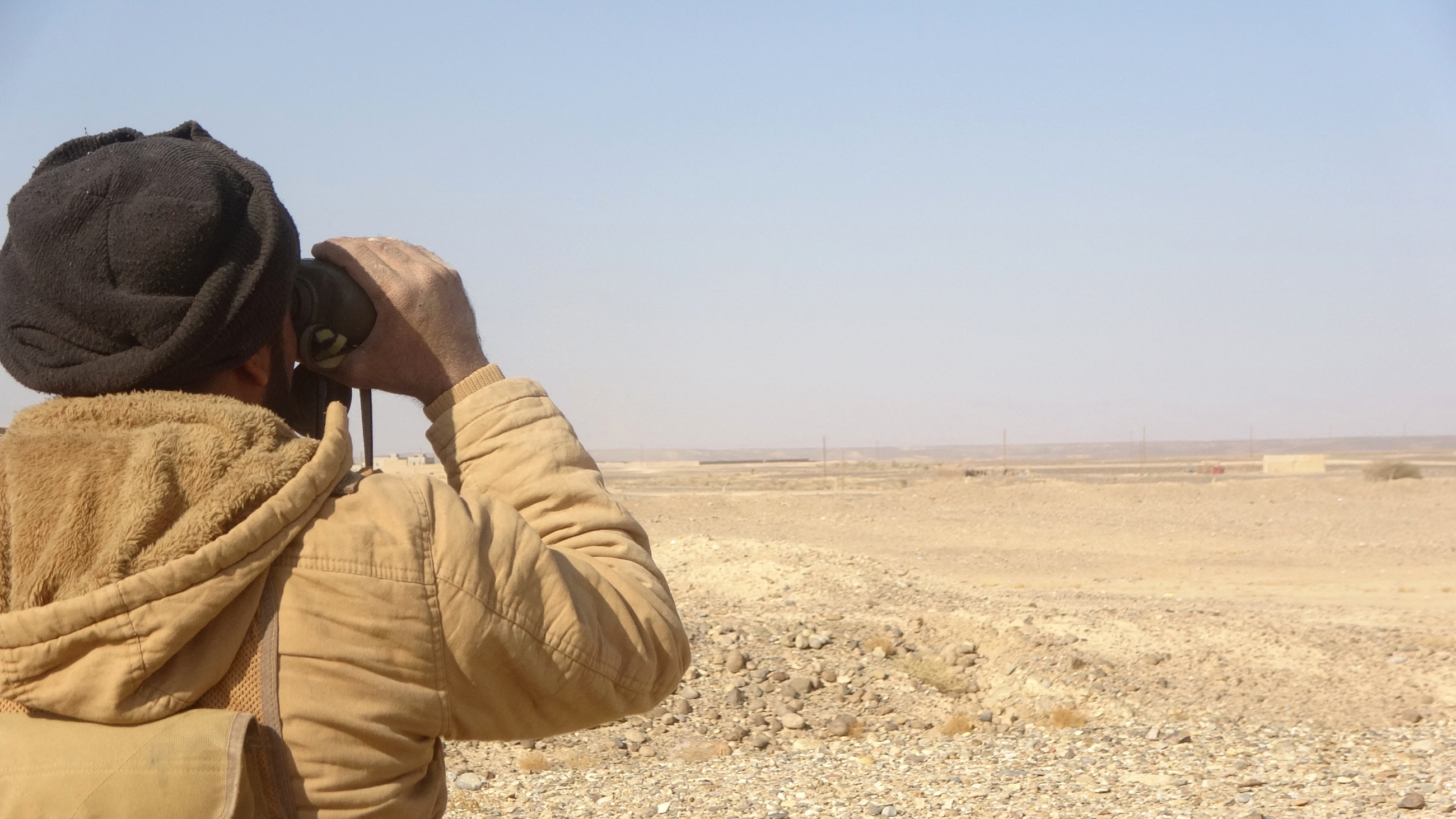
In the words of Hassan Zaid, the late president of Yemen’s al-Haq party: “The Yemen war divided the Arab world, but Oman succeeded in remaining neutral.” Indeed, as the only Gulf Cooperation Council (GCC) member that never joined the Saudi-led military coalition against the Houthi rebels, Oman’s reputation as the “Switzerland of the Middle East” is highly relevant to its policies in Yemen.
The sultanate has established a high diplomatic profile in war-ravaged Yemen by playing a bridging role between warring factions. As the Biden administration in the US seeks to bring the multifaceted war to a diplomatic settlement, the new leaderships - in both Washington and Oman - will likely see eye-to-eye on many Yemen-related issues. These dynamics could create a synergy necessary for resolving the crisis.
Having never engaged in hostilities against Houthi fighters, Oman maintains a healthy relationship with the group, which controls territory covering about 70 percent of Yemen’s population. Unlike other Gulf Arab states, the Omani leadership has never seen the armed Houthis as an enemy, but rather as a faction representing a community in Yemen that cannot be ignored in the establishment of a new order in post-conflict Yemen.
Muscat's engagement with the Houthis has led to a gradual buildup of mutual trust
“Oman keeps the same distance from all Yemeni parties,” an Omani diplomat in Washington told Middle East Eye. “Therefore, it calls upon all the parties to rally around the table of constructive dialogue in order to reach a peaceful and consensual solution to the ongoing conflict.”
Differing perspectives on the Houthis and the overall situation in war-torn Yemen have fuelled tensions between Oman on one side, and Saudi Arabia and the UAE on the other. By participating in joint military drills with the British in 2018, Oman signalled its opposition to Emirati military actions in eastern Yemen and the UAE’s Yemen policy at large, according to the Sanaa-based Abaad research centre.
New MEE newsletter: Jerusalem Dispatch
Sign up to get the latest insights and analysis on Israel-Palestine, alongside Turkey Unpacked and other MEE newsletters
In February 2019, Oman’s then-foreign minister, Yusuf bin Alawi, said that Muscat disagreed with Abu Dhabi’s actions in Yemen because the Omanis do not “push forward and cause wars or disputes”.
Despite such dynamics adding friction to Oman’s relations with its two immediate GCC neighbours, Muscat’s engagement with the Houthis has led to a gradual buildup of mutual trust. Just two months after Saudi Arabia launched offensive operations in Yemen in March 2015, Oman hosted peace talks in Muscat, which included Houthi representatives and US diplomats.
Direct security threat
Over the years, injured Houthis have received treatment in Omani hospitals next to Yemenis from other sides within the conflict. Omani officials have mediated the release of numerous Americans and other westerners detained by the Houthis in Yemen. The sultanate has also facilitated international travel on the part of Houthi figures engaged in peace talks in foreign countries such as Kuwait, flying them on Omani airplanes via Muscat.
In late 2020, Oman made clear its disagreement with the Trump administration’s plans to designate the Houthis as a foreign terrorist organisation. Samuel Ramani, a researcher at the University of Oxford, wrote that “the Houthis are the leading advocates for the expansion of Muscat’s diplomatic role in Yemen”.
Oman takes its diplomatic role in Yemen seriously, especially as the continuation of the war and all its humanitarian crises represent the gravest direct security threat to Oman, which shares a 187-mile border with Yemen. Within this context, helping the parties involved to resolve the crisis is a high regional policy priority for Muscat.
Since the outset of the Saudi-led military intervention in Yemen in 2015, the Omanis have seen the conflict worsen, and sought to assist in all efforts to push for a diplomatic settlement based on compromises. Officials in Muscat have always believed that it was not feasible for the Arab coalition to achieve its goals in Yemen through military means; now, the White House has new occupants who share this understanding.
Shifting course
The Biden administration has moved quickly to shift course on Yemen and signal a move away from the Trump era. On 4 February, President Joe Biden spoke about the need to limit the US role in the conflict. “This war has to end,” he declared. “And to underscore our commitment, we’re ending all American support for offensive operations in the war in Yemen, including relevant arms sales.”
Put simply, whereas Trump sought to boost Saudi Arabia’s military strength in Yemen through lucrative arms sales to Riyadh (and Abu Dhabi) under the banner of pushing back against the expansion of Iran’s “malign” influence, Biden seeks to pursue a diplomatic solution to end the six-year war.
Biden’s administration will probably place much more value on Oman’s diplomatic role in Yemen than the Trump administration did, as with a 24 February conversation between US Secretary of State Antony Blinken and Omani Foreign Minister Sayyid Badr al-Busaidi.
As the Houthis’ state sponsor and arms provider, Iran will need to be engaged in Yemen’s peace talks. Just as Oman served as a diplomatic bridge between Washington and Tehran on the nuclear dossier, Muscat can also facilitate dialogue between the US and Iran on the Yemen crisis. This conflict is an opportunity for the Biden administration and Tehran to develop some degree of trust that could translate into progress on nuclear talks.
What comes next?
Just as the government of Oman worked closely with the Obama administration in 2012 and 2013 in facilitating the US-Iran dialogue that laid the groundwork for the nuclear deal, officials in Muscat will again be working with many of these same figures, now back at the helm of US foreign policy in the Biden administration as they seek to intensify diplomatic efforts to end the war in Yemen.
The Omani leadership can play a vital role in exchanging messages, facilitating dialogue and establishing the parameters of what comes next in Yemen
Such connections and past experiences will be a foundation for the new US leadership and the Omani government, led by Sultan Haitham, to build upon as diplomatic efforts intensify.
Officials in Muscat have also worked closely with the new US special envoy for Yemen, Timothy Lenderking, in his previous role as deputy assistant secretary of state for Arabian Peninsula affairs.
With a point person in Washington who combines decades of experience in the region with deep professional relationships with Gulf policymakers, the Omani leadership can play a vital role in exchanging messages, facilitating dialogue and establishing the parameters of what comes next in Yemen.
The views expressed in this article belong to the author and do not necessarily reflect the editorial policy of Middle East Eye.
Middle East Eye delivers independent and unrivalled coverage and analysis of the Middle East, North Africa and beyond. To learn more about republishing this content and the associated fees, please fill out this form. More about MEE can be found here.


